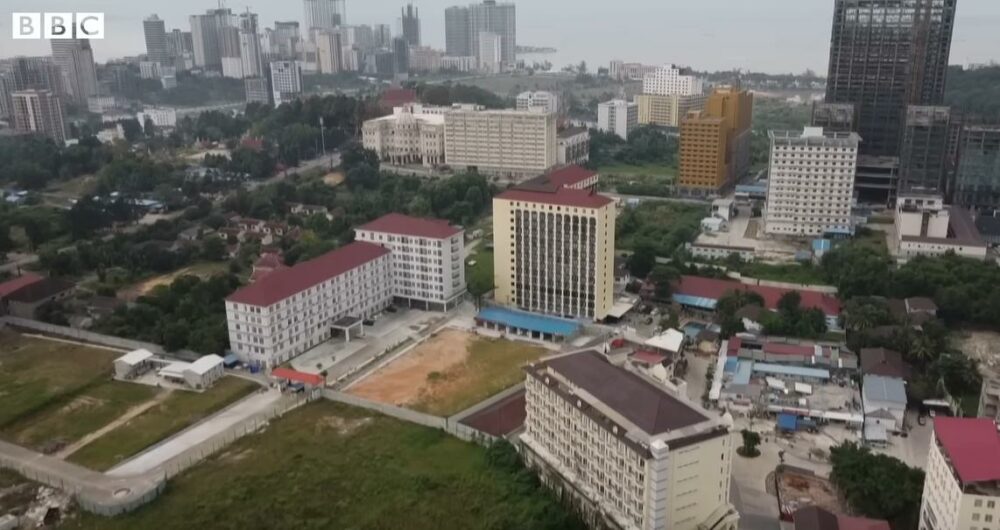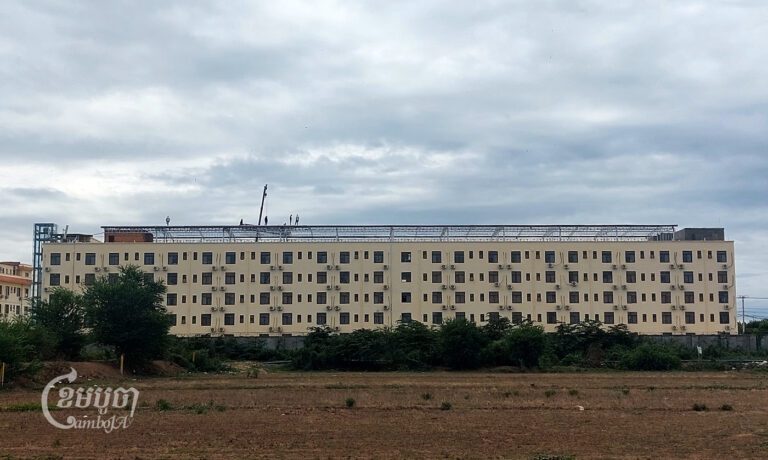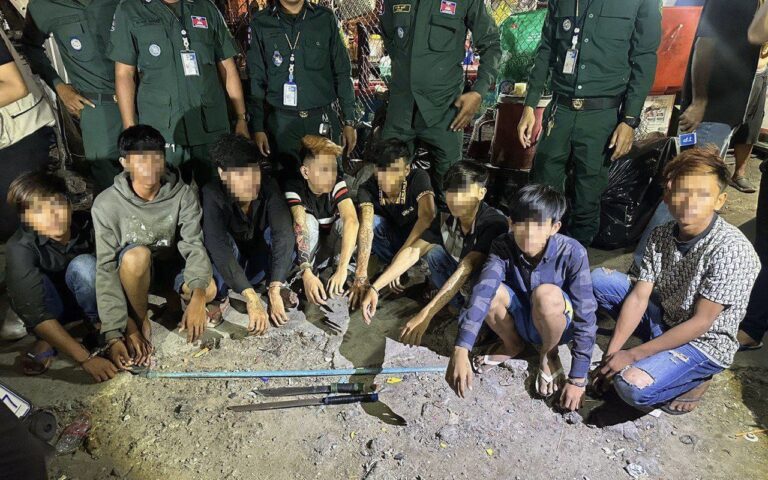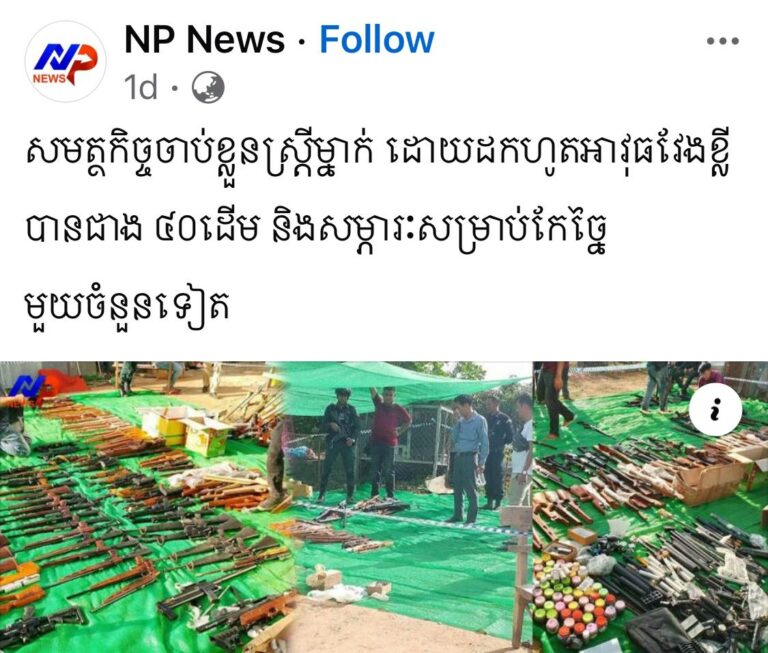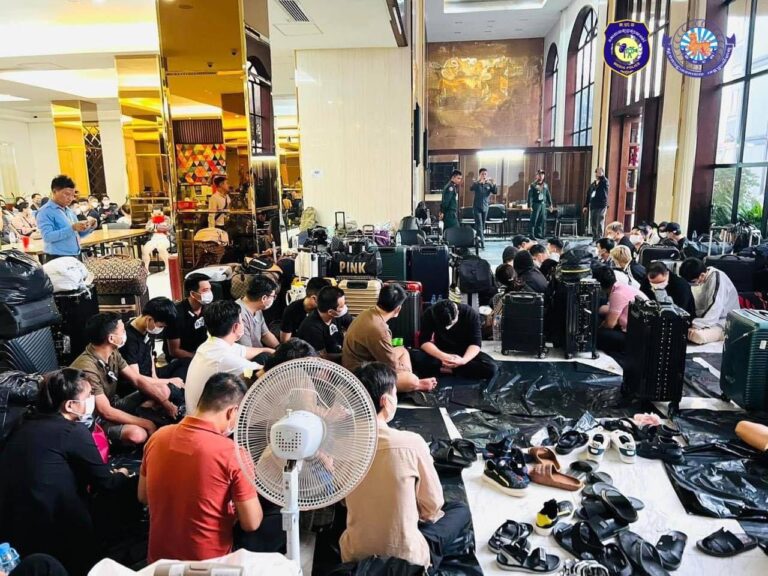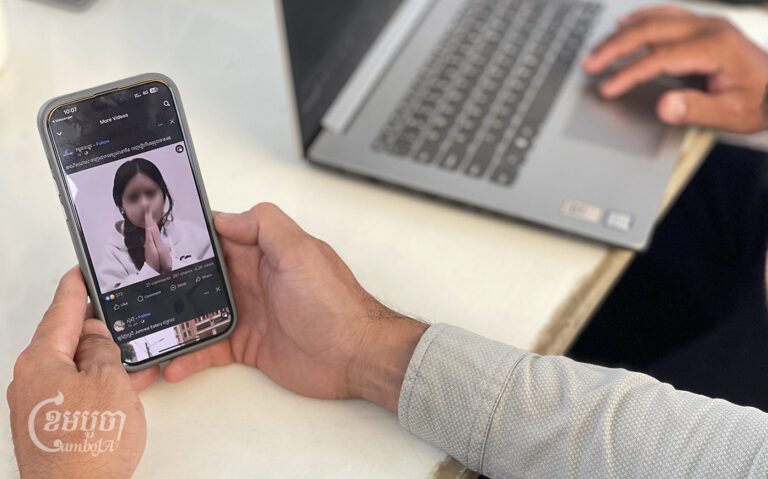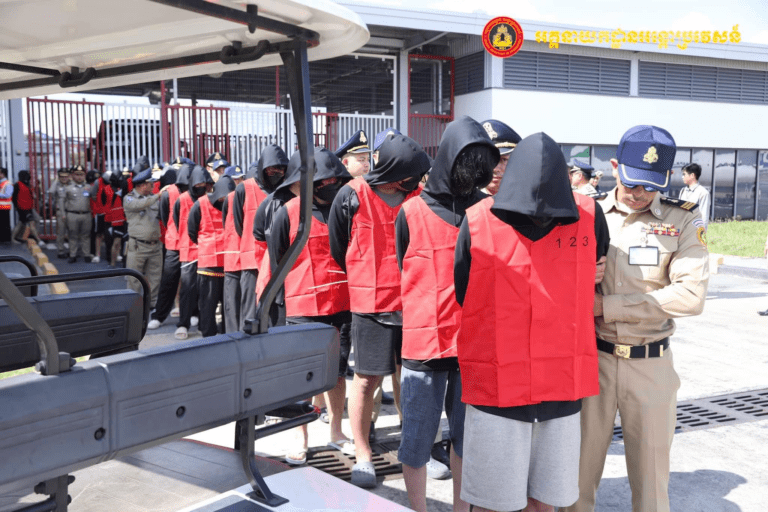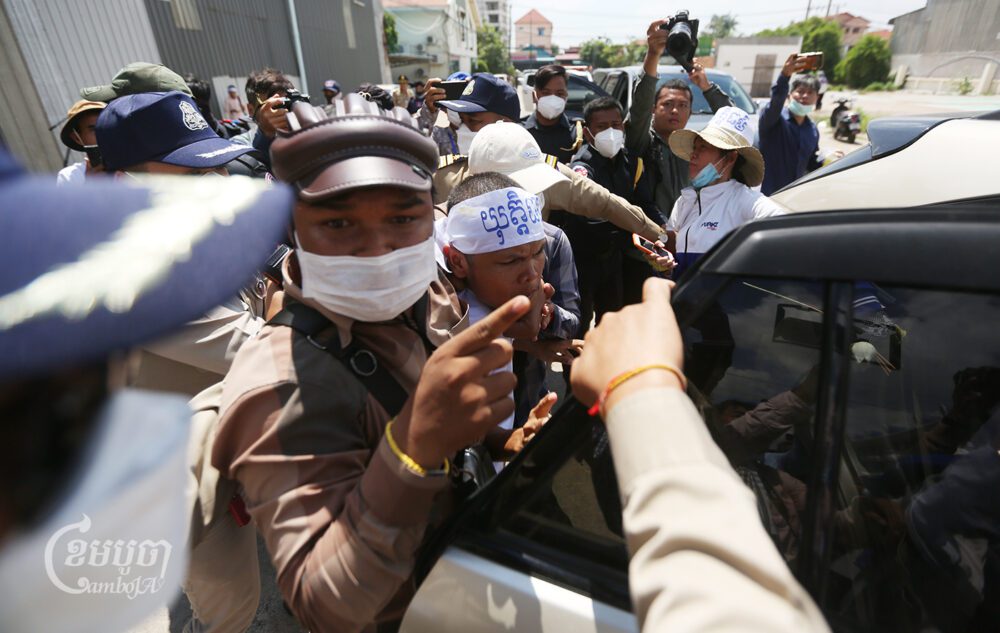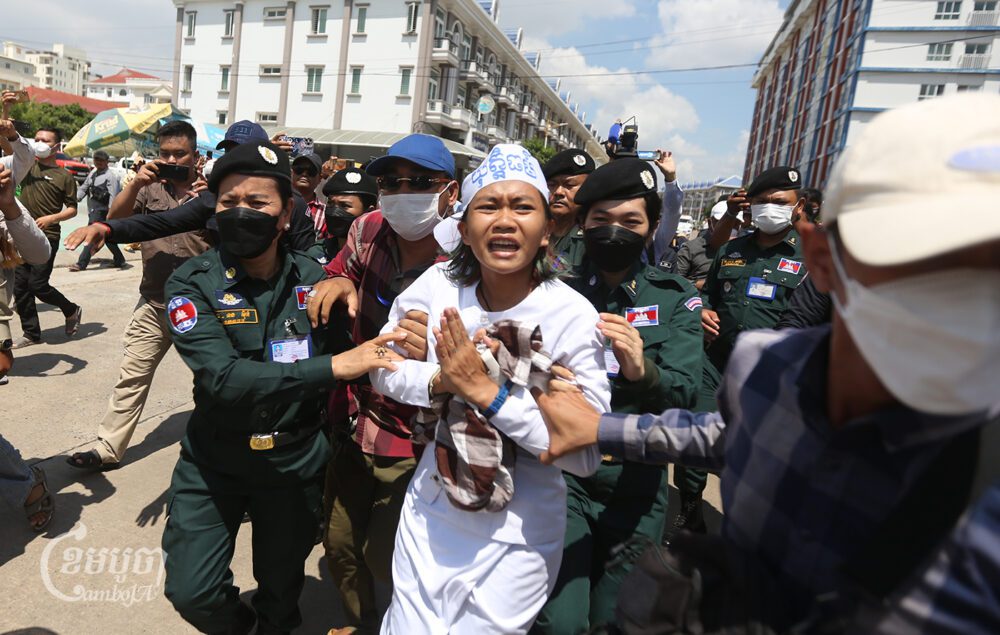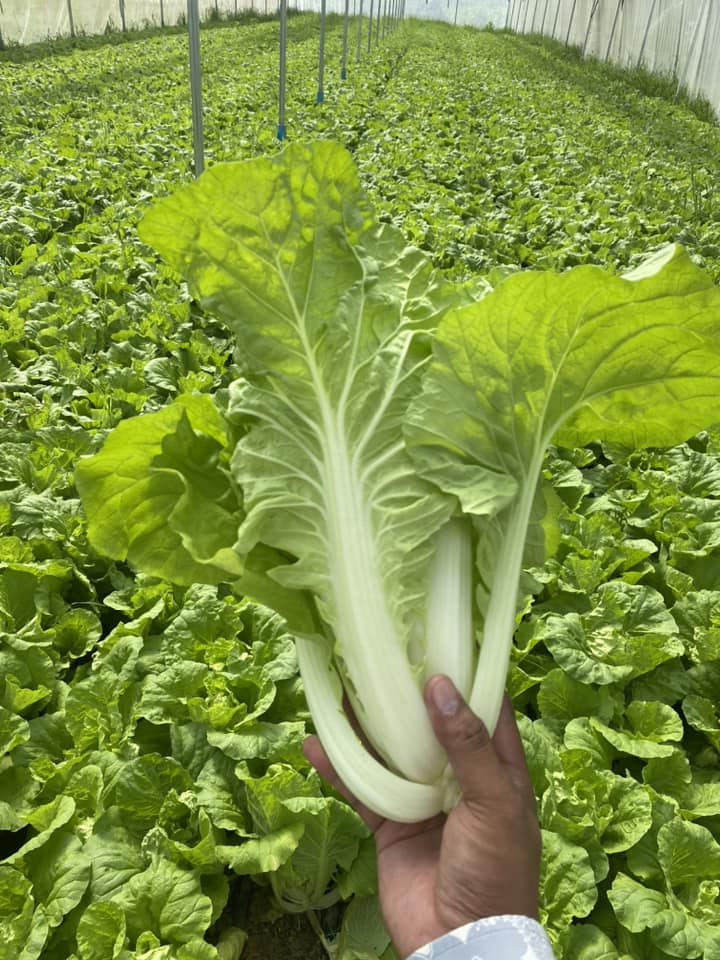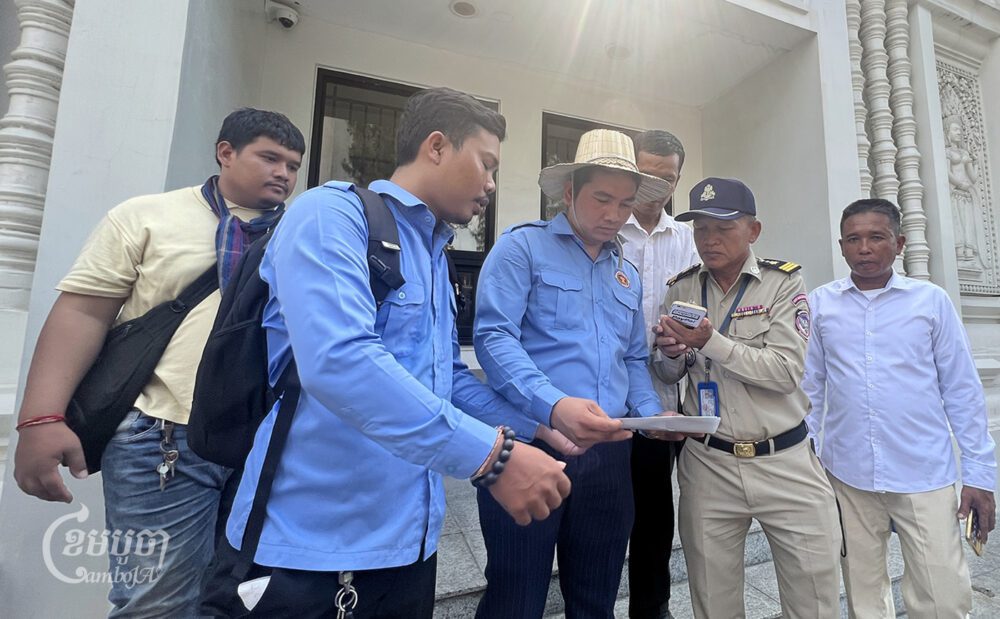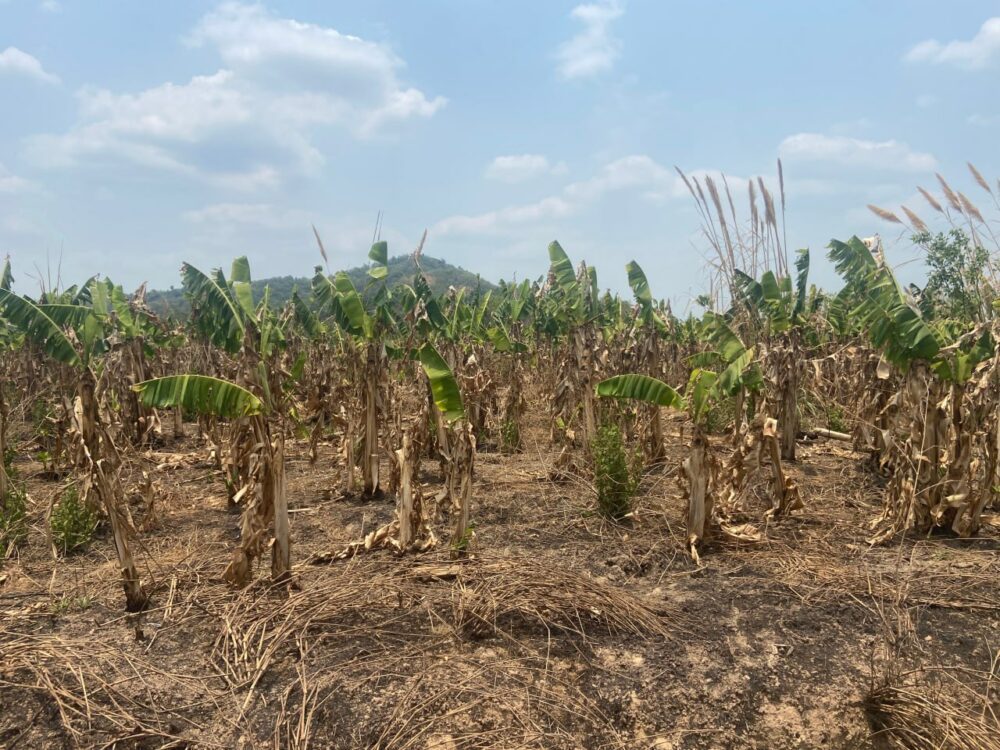A BBC documentary’s detailed evidence of scam operations and human trafficking at a Sihanoukville compound are “baseless,” Preah Sihanouk provincial administration claimed in a Tuesday statement.
Authorities would “completely dismiss” the report’s allegations of torture, forced captivity and criminal activity, the statement added.
The BBC documentary, published on March 8, followed the escape of a Chinese man from inside the Huang Le compound and also showed footage of a man who said he was held against his will there, later dying when he became sick and was denied medical treatment. The report also contains a recorded call from an alleged Huang Le recruiter who explicitly details how bribes to authorities allow the compound to operate safely.
Provincial authorities, which BBC said did not respond to its requests for comment, claimed the BBC’s reporting was “baseless” and “by no means, reflected the reality of the current situation.” They claimed they had “paid serious attention” to the BBC’s report and worked with National Police to “properly investigate and verify this information.”
Authorities confirmed in their statement that the Huang Le compound shown in the video is registered as the Majestic 2 Casino owned by a man named Kuong Li and had received its most recent operation license on December 27, 2022. The authorities said they received six complaints from 11 foreigners requesting to “resign from their respective works.” One case of human trafficking was found, authorities reported.
Preah Sihanouk deputy governor Long Dimanche did not deny the validity of the footage and reporting in the video, but said some of the scenes had allegedly happened before authorities cracked down on the compound.
“We would like to clarify that some of the events and images published by the BBC were old images before our operations to crack down on human trafficking,” he told CamboJA. “When we already cracked down and a few months later the BBC published the story.”
The BBC said the compound continued to operate as of the documentary’s March 8 publication, more than four weeks after authorities were provided with detailed evidence showing criminal activities there. Li has faced no charges.
Dimanche said provincial authorities previously received three to four cases of complaints a day via a hotline, but since a crackdown campaign last year, he claimed authorities had not received even a single complaint.
“This indicates that the situation has been improved and there are no more enclosed locations, and all hotels, guesthouses, condominiums, and casinos are all free flow,” he said, claiming authorities were on guard for future crimes.
But in the past months, numerous reports have surfaced on social media and in local news reporting highlight spates of violence, at least three suicides in Sihanoukville in four days in March, and alleged resumption of activities in many known scam compounds, even as scam operations expand regionally. A December casino license was granted inside the notorious Kaibo compound, a well-documented site of scam and trafficking operations according to Cyber Scam Monitor, a site tracking the online scam industry. Law enforcement officials have previously told CamboJA and other media they believe the crackdown was merely temporary and operations have continued throughout the Kingdom.
Li, who the BBC said did not respond to requests for comment told CamboJA, denied the documentary’s allegations. He acknowledged owning the property but claimed was renting it to a Chinese investor whom he did not name.
“I just rented the land and casino to a Chinese national, however, it does not matter who is the owner, the important thing is it did not happen as claimed,” Li said. “The images and footage of hitting and shocking the [victim] happened in Myanmar.”
When asked if the compound was previously raided by authorities linked to confinement or human trafficking, Li said worker complaints against employers were normal.
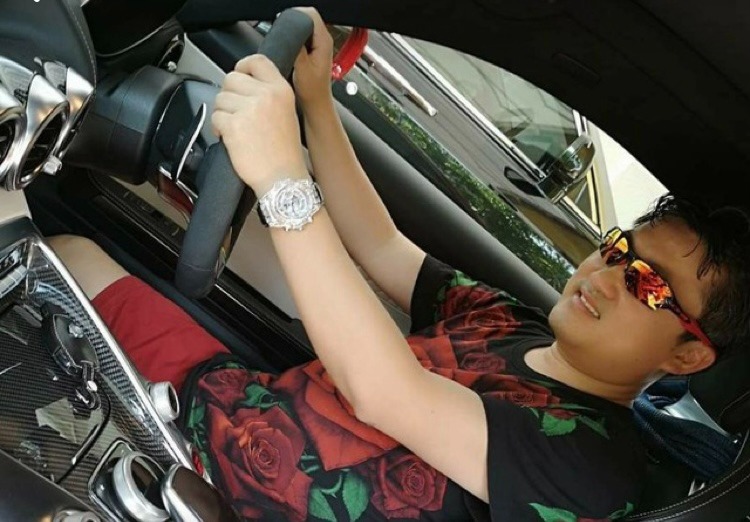
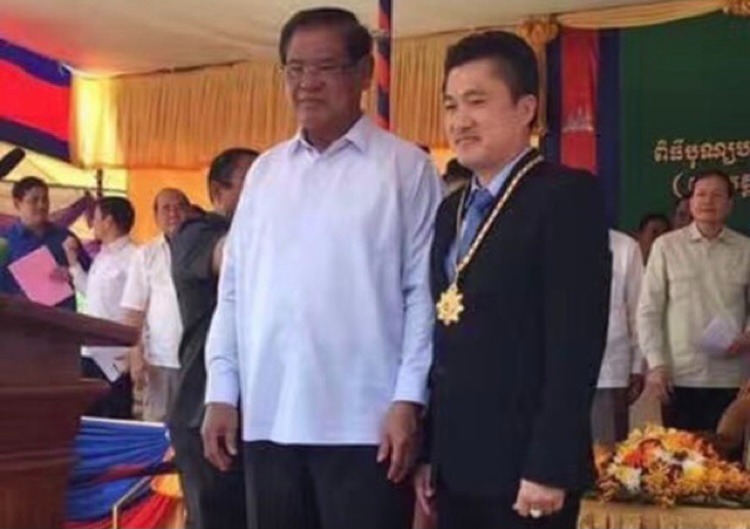
The two Chinese nationals who appeared in the BBC documentary allegedly were not “recorded in the foreigner identification database” as requesting intervention, the authorities’ statement claimed.
On February 8, after receiving questions from the BBC, the statement said that “competent authorities” from the Department of Anti-Commercial Gambling Crime began an investigation into the casino.
“What was shown by BBC happened before the operation,” National Police spokesperson Chhay Kimkhoeun said. “The names of the victims mentioned in the [report] were not found to be living and working in Cambodia.”
Didi, the Chinese national who recounted his escape from the compound to BBC, had explained he was illegally trafficked into Cambodia.
The 13 storey compound — which according to authorities seven floors for staff “accommodation” and the top four floors for the casino’s “administrative office” — “showed no sign of neither forced captivity nor torture,” Preah Sihanouk authorities’ statement claimed.
In response, one of the BBC reporters who produced the documentary, Zhaoyin Feng, noted on Twitter that despite all the floors devoted to operations the compound had “no casino.” “What do people do there?” she asked.
Feng and the documentary’s other reporter, Natalia Zuo, did not respond to requests for comment prior to publication.


